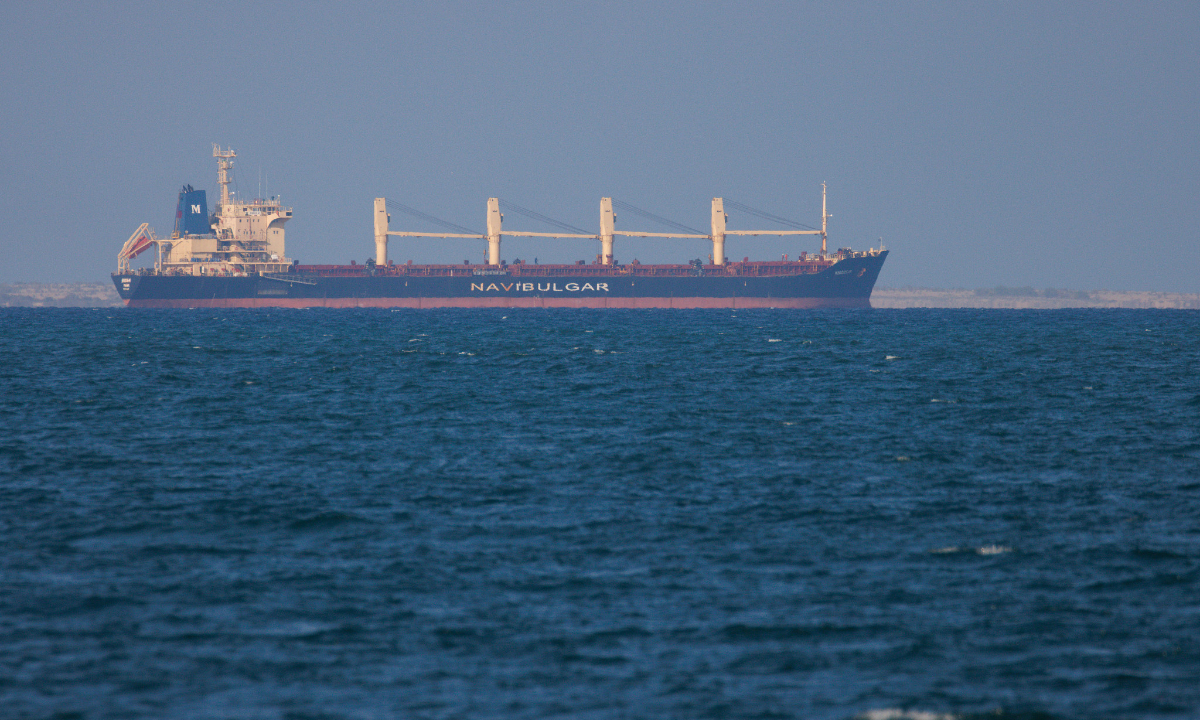Impact of Red Sea tension on Persian Gulf shipping gradually diminishing as booking prices decline: Shanghai Shipping Exchange

Photo:VCG
The impact of the tense situation in the Red Sea region on logistics in the Persian Gulf route is gradually diminishing, with spot market booking prices continuing to decline, according to the Shanghai Shipping Exchange on Saturday.
Demand for transportation through the Persian Gulf has slowed, while the supply-demand relationship has weakened, the Shanghai Shipping Exchange noted in its most-recent weekly report on the Chinese export container shipping market, as of Friday.
The freight rate, including shipping and surcharges from Shanghai Port to the basic port market in the Persian Gulf was $1,982/TEU on Friday, a decrease of 10.9 percent compared to the previous period, according to the Chinese export container shipping market.
The Red Sea situation has had a significant impact on container shipping, news outlet chinatimes.net.cn reported, citing maritime big data company Elane. It noted that in the six weeks since December 2023, the number of container ships passing through the Bab-el-Mandeb Strait has continuously declined. Compared to December 15, 2023, the number of container ships in the Red Sea has decreased by 70 percent, dealing a heavy blow to container shipping routes passing through the Red Sea in a short period of time.
On Thursday, He Yadong, a spokesperson for the Ministry of Commerce said the ministry will keep track of the situation in Red Sea region in response to the escalation and will offer timely support to foreign trade enterprises.
He called for all concerned parties to restore and guarantee shipping route security on the sea lanes of the Red Sea and guarantee the smooth flow of global production and supply chains as part of normal international trade.
Answering a reported statement from a senior official of the Houthis who promised the safe passage of Russian and Chinese ships through the Red Sea, Mao Ning, the spokesperson from Chinese Foreign Ministry said on Friday that China has been calling for a halt to the harassment and attacks on civilian ships to keep global industrial and supply chains unimpeded and safeguard the international trade order.
Mostly recently, Yemen's Houthi group on Friday claimed responsibility for carrying out a missile attack on a US ship in the Gulf of Aden, the Xinhua News Agency reported.
The situation has remained tense since Houthi rebels in Yemen announced that they had hijacked and detained a ship with connections to Israel in November 2023. Over the following weeks, the situation escalated, leading to a decrease in the number of ships passing through the Bab-el-Mandeb Strait.
"Currently, the crisis has led to a reduction in capacity, increased costs, and disrupted schedules on the Far East-Europe container shipping route. If the crisis does not show signs of easing and is compounded by the Chinese New Year factor, it may have a significant impact on global supply chain security," chinatimes.net.cn reported, citing a report by Elane.
Major international shipping companies such as Maersk, MSC, Hapag-Lloyd, and ONE are expected to continue bypassing the region through the Cape of Good Hope for several months. The escalating crisis in the Red Sea is increasing the risk of shipping disruptions, according to prediction of Ningbo Shipping Exchange.
The Ningbo Shipping Exchange said that the detour adds an additional 20-30 days to the Asia-Euro-Mediterranean round trip, requiring an extra 30-40 percent of vessel capacity. As the detour continues, there may be a concentration of vessels or a shortage of vessels on the Euro-Mediterranean route, which will disrupt freight rates.
It is predicted that after the peak shipping season ends in mid to late January before the Chinese New Year, freight rates typically decrease. However, in mid-March or early April, freight rates gradually increase due to increased demand. The reduction in freight demand will to some extent mitigate the impact of the detour on market shipments and freight rates, and new shipping schedules will be established. However, if the detour continues after March 2024, freight rates will inevitably remain at a higher level, Ningbo Shipping Exchange said.
Global Times


